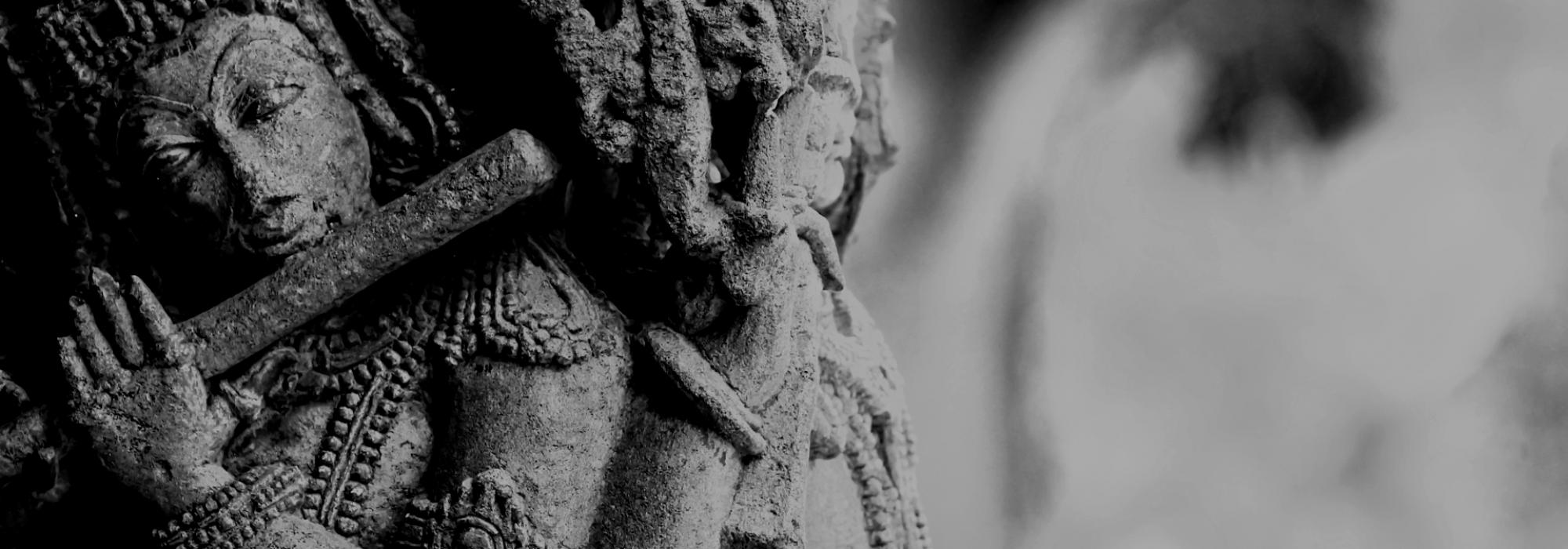Krishna grew up in Gokula with cowherds and was a true ‘son of the soil.’ From his earliest days, he developed a close connection with nature. He learnt to respect the environment even as a child. There is an episode in the Bhagavata Purana where he paid respect to the great Banyan tree (BP 10.22). He respected a tree, a cow, a human being. He respected the whole of creation. Even when he fought against the great snake Kaliya, Krishna didn’t kill him; instead he rehabilitated him (BP 10.16-17). He played the flute with great virtuosity. Such was the attractive tone of his flute that listeners remained lost in the music. He had a great social life and mingled with everyone with ease, bringing them great joy. He danced and sang with the gopikas. Yet, he was a deeply contemplative person, capable of profound insight.
It was only in his late teens that Krishna got the chance to be formally educated. He traveled all the way from Mathura to Ujjain to learn under the great teacher Sandipani (BP 10.45). He didn’t feel ashamed that his classmates were much younger than him; instead, he became a guide to them. He says in the Gita that one should learn from a teacher who has realized the truth; one should approach the teacher with a spirit of sincere inquiry and serve them with humility (BG 4.34). That is precisely what he himself did when he enrolled at Sandipani’s gurukula. Krishna proved to be a great student and a quick learner. He also had great value for knowledge, which he later emphasizes in the Gita (BG 4.38-39).
Later on, Krishna went to the seer Ghora Angirasa to learn yoga and the systems of philosophy (Chandogya Upanishad 3.17.6). With this wisdom, it is said that he conquered hunger and thirst. In other words, he moved beyond the body.
While speaking about yogis, Krishna says in the Gita that one who controls his senses and masters himself is steadfast in yoga (BG 5.7). Later he mentions that those who hope to reach the eternal state lead a life of brahmacharya (BG 8.11). Brahmacharya – adhering to the path of brahman – basically refers to leading a life of purity and not letting the mind wander about trivial matters; one who leads such a life is called a brahmachari.
In the Mahabharata, Ashvatthama hurls the brahma-shiras-astra with the chant, “निष्पाण्डवमस्तु” (Let the Pandavas be no more!) and eventually the weapon is directed to Uttara’s womb. Krishna says, “If I am a brahmachari, let this child live. If I am honest, if I have never told a lie even in jest, and if I have never run away from battle, let this child live!” (MB 14.68). And Uttara’s child survives. It is a symbol of his self-control and mastery over his being.
Over the years, he learnt many skills. In speech, his eloquence was unmatched. He was a great statesman, a persuasive negotiator, and a consummate strategist. He even proved to be a brilliant detective on the trail of the priceless shyamantakamani (BP 10.56-57). He went to great lengths to avoid war and yet when the need arose, he could fight. He was an invincible warrior and he personally trained many warriors. But he is always remembered for his gentle smile and his wisdom. Doubtless, he is one of the early polymaths in our tradition.
To be continued...

















































